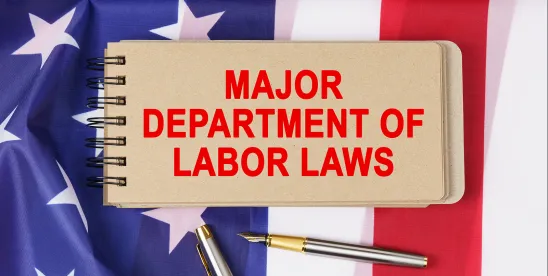What about those salary thresholds for white-collar employees? Although they have been challenged, they are alive and kicking. Last week, the United States Court of Appeals for the Fifth Circuit affirmed that the Department of Labor has the authority to set the minimum salary required to qualify for the white-collar exemption.
Remind Me
The Minimum Salary Rule to the white-collar exemptions sets the minimum that an employer must pay someone “employed in a bona fide executive, administrative, or professional capacity” so they are exempt from overtime. In 2019, DOL raised the minimum weekly salary from $455 to $684. The suit, Mayfield v. U.S. Department of Labor, was brought by a small-business owner who runs 13 fast-food restaurants in Austin, Texas. He challenged that DOL does not have the authority to define the white-collar exemption by salary.
And What Does This Have to Do with Chevron?
Mayfield became an intriguing test of federal agency power in the aftermath of the Loper Bright Enterprises v. Raimondo decision. In Loper, the Supreme Court overruled the longstanding Chevron doctrine, which required courts to defer to permissible agency statutory interpretation. The Court held that the Administrative Procedure Act requires courts to exercise their independent judgment in deciding whether an agency has acted within its statutory authority. So, the judiciary is no longer required to defer to an agency’s interpretation of the law simply because the statute is ambiguous.
What Did the Fifth Circuit Say?
The Fifth Circuit explained the Minimum Salary Rule has two interpretations that are both allowed under DOL’s authority:
- “By promulgating the Rule, DOL defines, in part, what it means to work in an executive, administrative, or professional capacity (namely, to earn at least a particular amount of money).”
- “By promulgating the Rule, DOL sets a limit on what is otherwise defined by the text of the [White Collar] Exemption.”
Because either interpretation is allowed under DOL’s authority, the court found that DOL has the authority to create the Minimum Salary Rule.
The Fifth Circuit disagreed with the plaintiff’s argument that the Minimum Salary Rule “arbitrarily” sets requirements without a textual basis because salary levels are a legitimate marker for white-collar status and “[d]istinctions based on salary level are consistent with the FLSA’s broader structure, which sets out a series of salary protections for workers that common sense indicates are unnecessary for highly paid employees.”
Takeaways?
For now, you must continue to pay employees in accordance with the FLSA’s minimum wage and overtime pay requirements except for those employees “employed in a bona fide executive, administrative, or professional capacity” and paid at least $844 per week. The salary thresholds changed effective July 1, 2024, and are scheduled to change more on January 1, 2025. Stay tuned.




 />i
/>i
